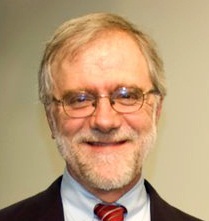A hiring hall for workers and employers, a progressive tax system and more state money are among the proposals from Howie Hawkins, Green Party candidate for Common Council District 4, on some key issues.
This is Hawkins’ 19th political run. His opponent this time is Khalid Bey, also a social activist and the Democratic candidate. Both are trying to succeed Democrat Tom Seals, who reached his term limit. District 4 includes the central portion of the city including downtown Syracuse, Brighton, Southwest, University Hill and University neighborhoods.
The District has 13,364 registered voters. Of those, 8,617 are Democrats; 1,190 are Republicans; 84 are Green Party.
The election is on Nov. 8.
Democracywise posed three questions to the candidates. Here are the responses from Hawkins:
Jobs
Q: The unemployment rate in Syracuse is hovering around 7.5 percent. What specifically, if anything, would you propose to create new jobs in the city?
A: A community hiring hall, he said, would help inner-city people get into the workforce. People would be encouraged to sign up and include their qualifications, he said., and contractors would use the hiring hall to see if people and jobs are compatible.
To create new jobs, he proposes a “municipal development bank” to help new businesses, like grocery stores and restaurants, get started in the district.
He also proposes a public power system. That, he said, would lower electric rates, which in turn would lower the cost of manufacturing in the city “It would bring more manufacturers here,” Hawkins says.
Young People
Q: Keeping and attracting young people is a long-standing concern for our region. The 2010 Census showed a continuing population shift from the city to Onondaga County. What, specifically, do you think the Common Council or city government should do make the city more attractive to young workers and their families?
A: “It needs to provide first-rate schools and public services,” Hawkins says. “We lose a lot of young people because they don’t want to put their kids in our schools.”
To pay for city services, he proposes an overhaul of the tax system to raise taxes on the affluent. “The rich need to start paying their fair share,” Hawkins said.
He also calls for the Common Council to create an income tax on people who work in the city. This means any person who makes money in Syracuse would pay taxes to the city. As an example, Hawkins said, individual making $50,000 in salary would pay an income tax of 0.4 percent. This would generate $12.4 million for Syracuse, Hawkins said. That money, he said, would go back into schools and public services, like youth jobs and parks and recreation programs.
The Budget
Q: Like many cities and towns, the city has budget problems. What, if anything, would you want the city government to do about taxes and city services or programs? To balance the budget, what taxes, if any, would you cut or raise? Why or why not? Without new revenue, what services or programs would you cut? What other measures do you think the city can or should do to resolve its budget shortfall?
A: In addition to a city tax on income, Hawkins also calls for generating more revenue for the city by seeking more state money. He also calls for increasing taxes on the wealthy.
“It’s time to go back to progressive taxation,” Hawkins said. “We’ve got a few millionaires in the 4th District, but I haven’t heard anyone speak out about it.”
A combination of progressive taxation and city income tax would help fix the budget issue in Syracuse, he said. He doubts the city can raise more revenue through efficiency. “I’m all for efficiency. There’s not enough savings to be squeezed,” Hawkins said. And he rejects cuts in city services or programs.
Said Hawkins: “We’ve already cut to the bone.”
(Caitlin M. Francis is a graduate student in broadcast and digital journalism.)
-30-



